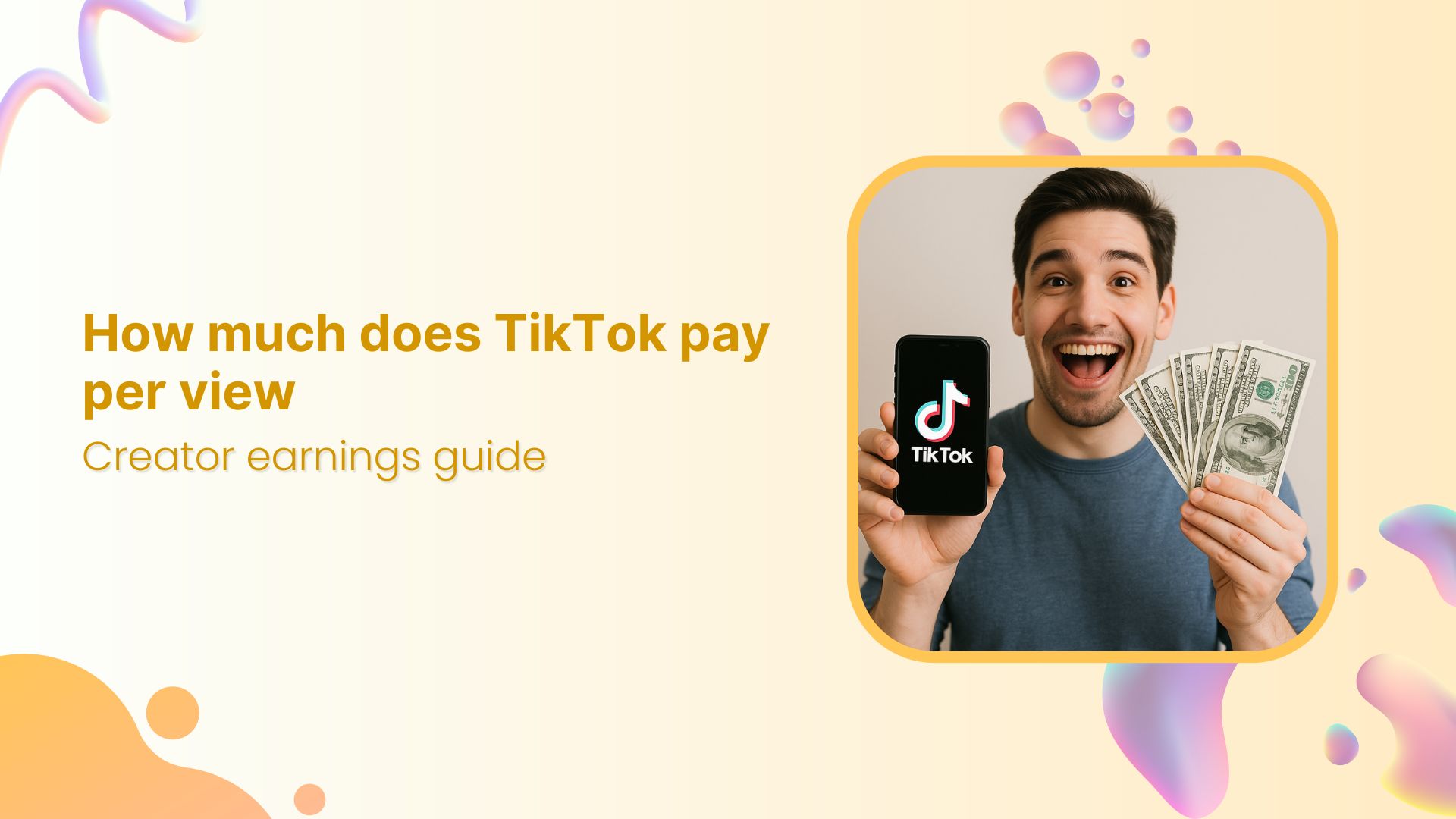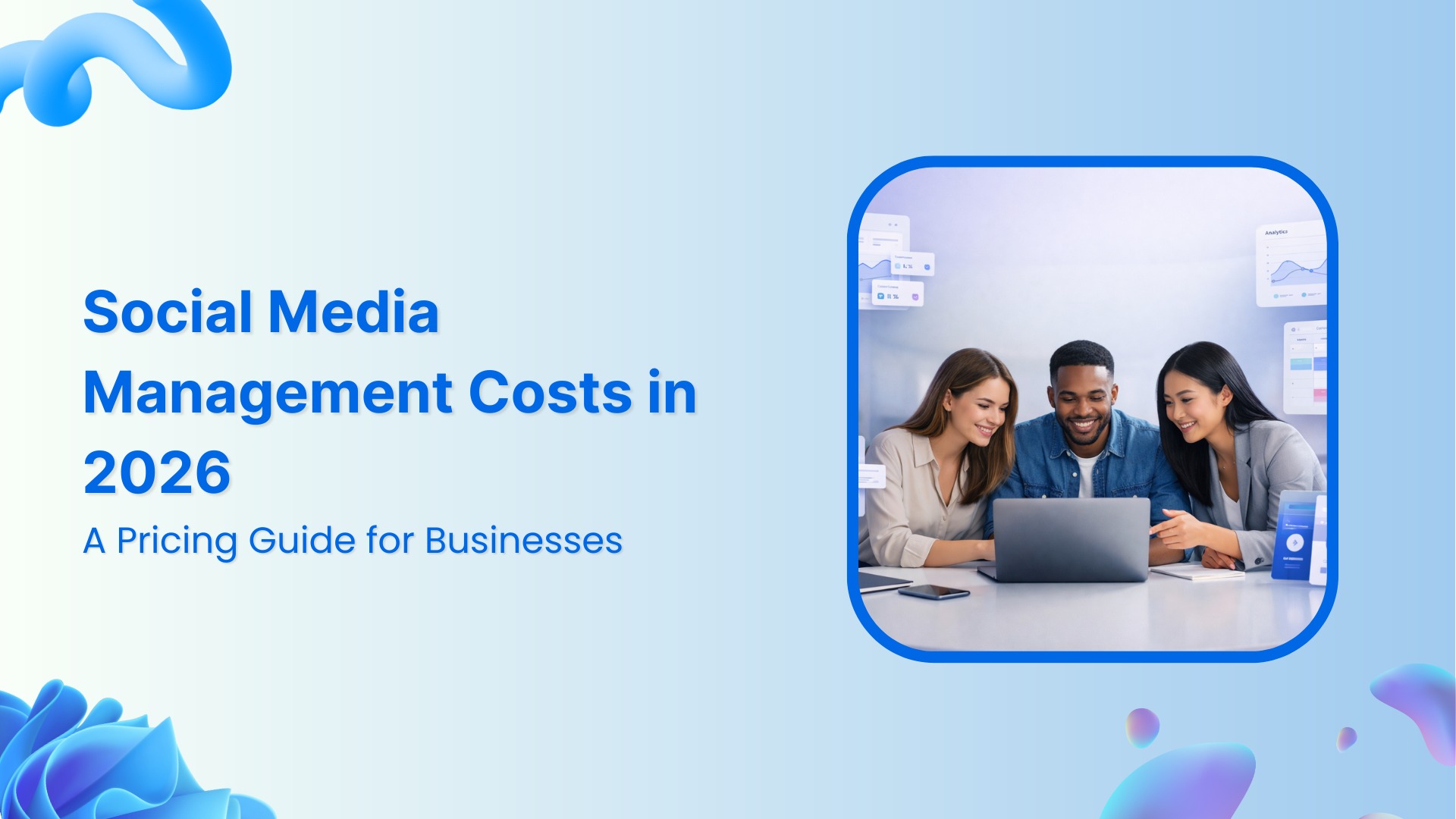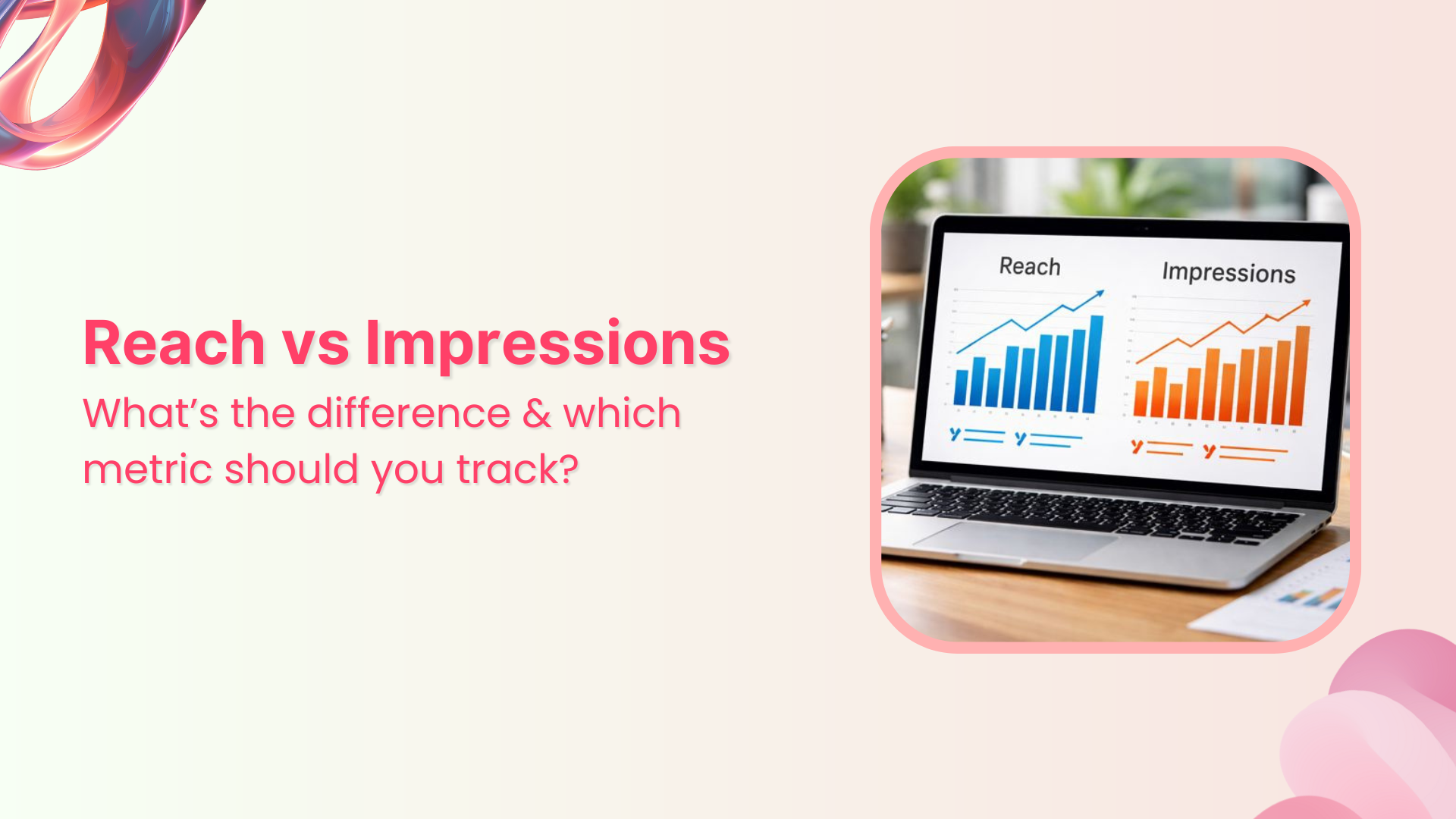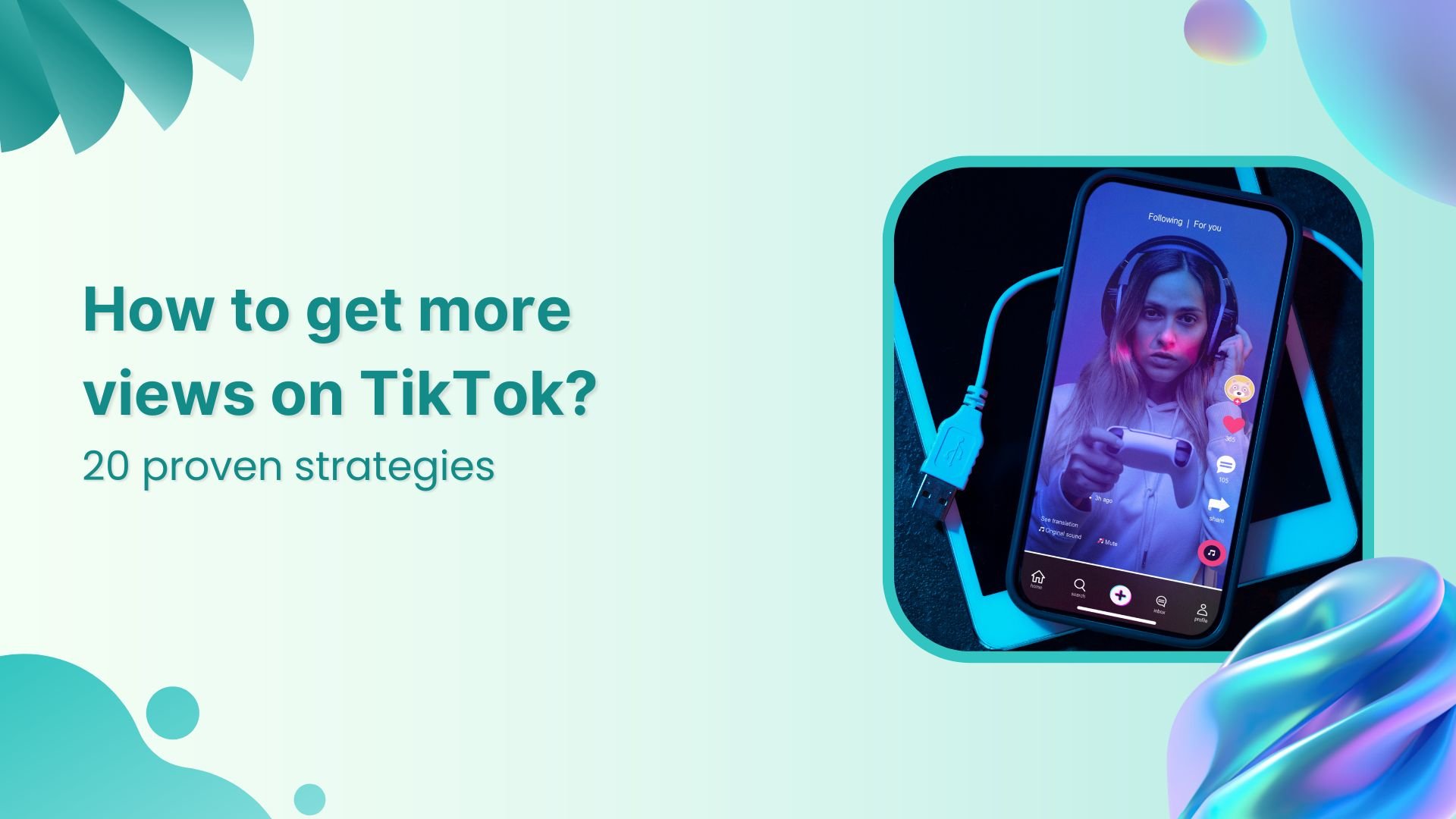Bulk-generate & schedule posts in seconds with Smart Scheduling. Try now!
Social media engagement: 14 easy ways to improve it
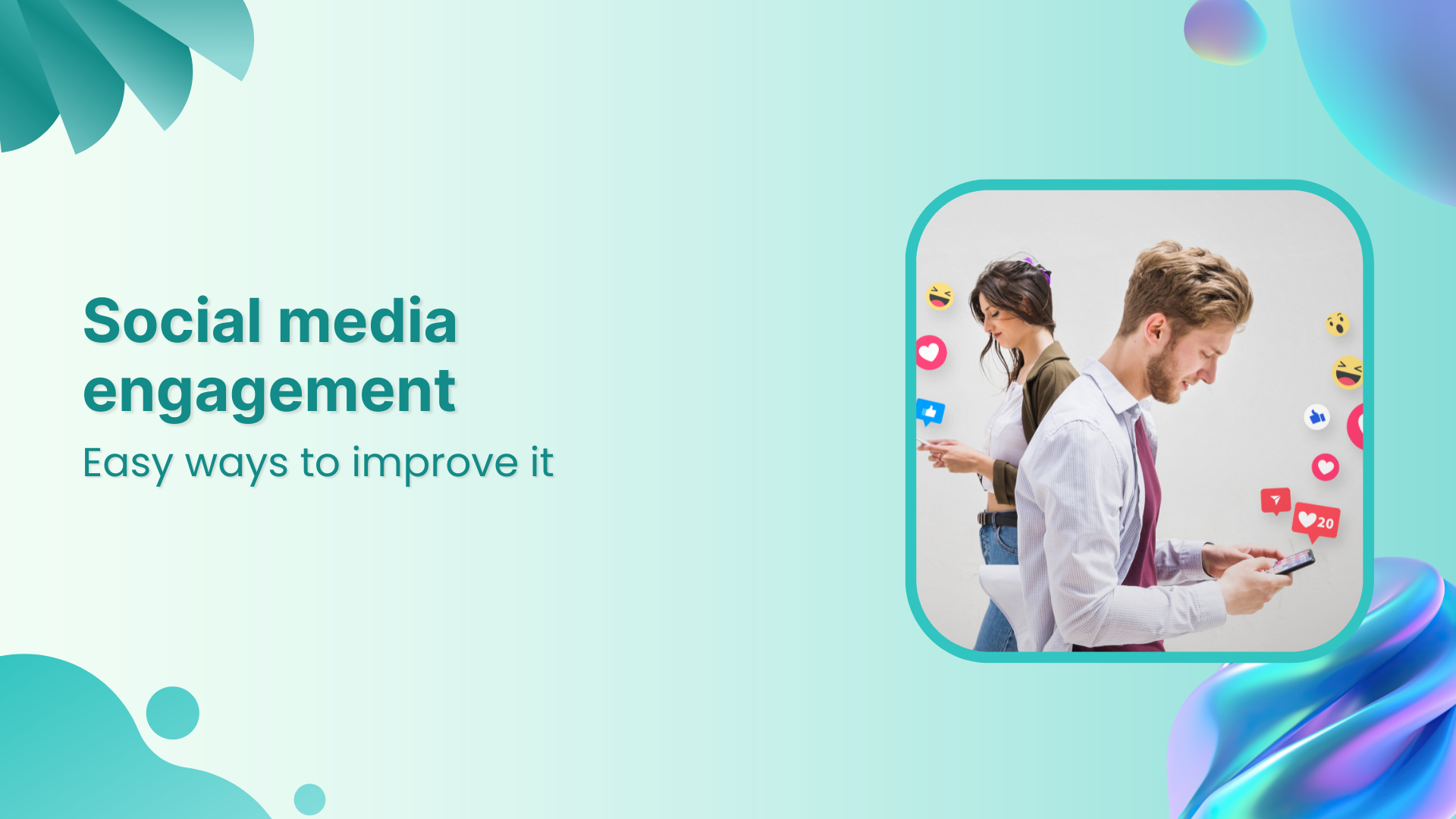
A higher social media engagement rate signifies your social media marketing efforts are resonating with your target audience.
But increasing your social media engagement doesn’t solely rely on creating new content — posting statuses, tweets, and images. Instead, it’s important to create and execute well-thought-out social media engagement strategies that outline what content to create to drive audience interaction when to post, and on what channels.
Creating a social media engagement plan that delivers positive results takes trial and error. So we decided to make it easy for you with this guide that we’ve put together to share our best tips and tools for growing your engagement. But first, let’s look at what is social media engagement, why it’s important, and how you can measure your social media engagement rate.
Experience an organized workflow to streamline your social media posts. Increase your productivity and boost social engagement.
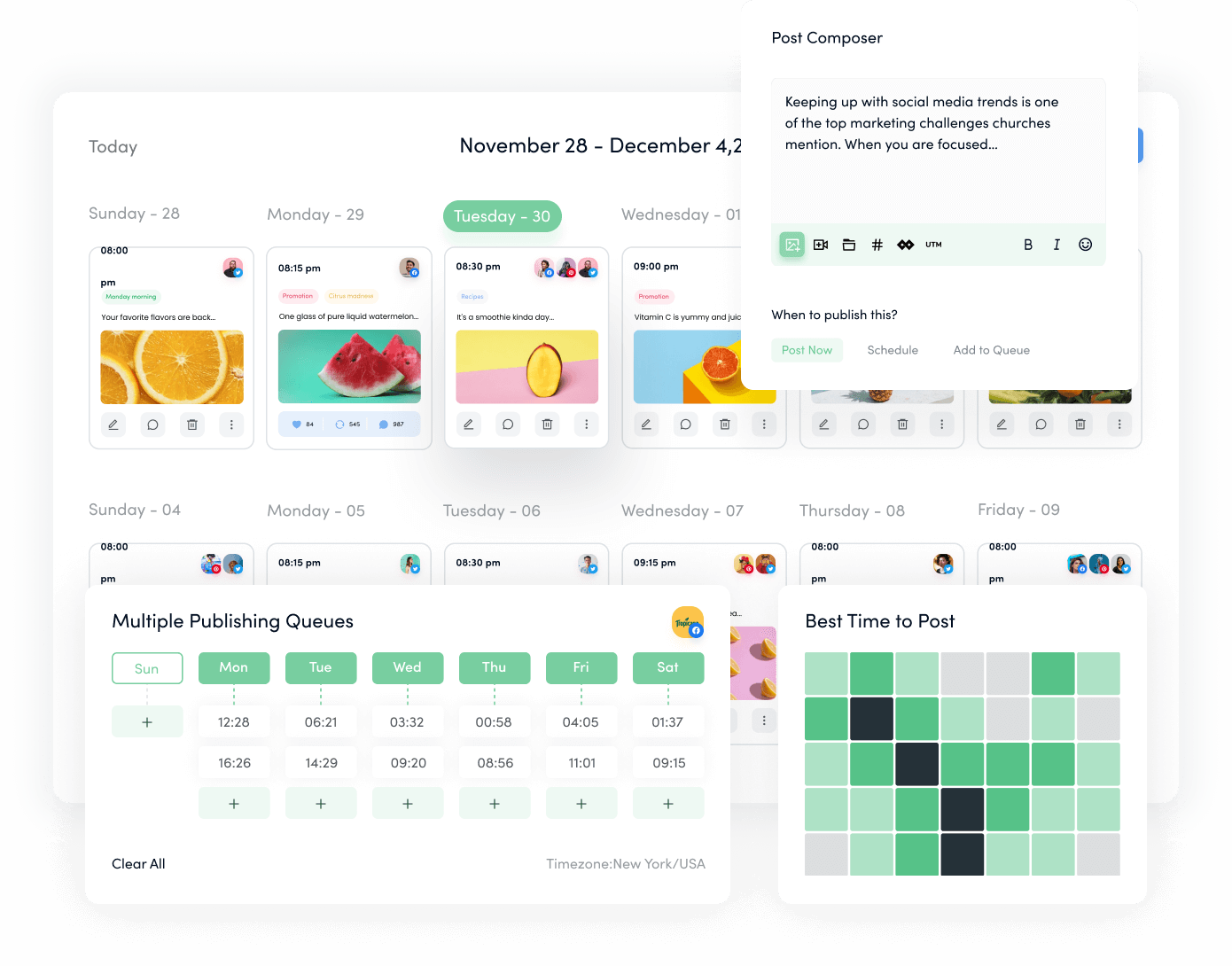
Plan, Organize and Schedule Your Social Content
What is social media engagement?
Social media engagement refers to how engaging your brand is on its social media accounts. It measures how your audience interacts with your content on social media channels like Facebook, Instagram, Twitter (X), TikTok, and more.
In other words, social media engagement refers to the number of likes, comments, and shares your posts receive on your social media accounts. The more interactions your posts receive on social media, the higher your social media engagement rate.
Why is social media engagement important?
Social media engagement reflects how well or how poorly your brand is doing on the social channels you are active on. It also determines your social media strategy’s success — showing how many of your followers are genuinely interested in the content you share.
Let’s break these benefits down further:
Social media engagement signals how interested your followers are in your business. For example, anyone mildly interested in your product or service would like your content the most. On the other hand, the most engaged of your followers will take the time to write a comment or share your post with their circle.
It helps you grow on social media. When followers interact with your content, social media algorithms can tell your posts are useful to these folks. As a result, it pushes your content further to similar audiences, which increases your reach — helping you connect with more people. Put simply, social media engagement multiplies your social growth and, with it, your business.
How to measure social engagement?
At first glance, you can tell a social account has an engaged audience by the number of likes, comments, and shares its posts garner.
Genuine social media engagement revolves around comments and shares or retweets, though not likes alone. This is because ‘liking’ a post takes a fraction of a second, but writing comments takes time — indicating that only engaged followers will take the time to interact with your brand by leaving comments on your content.
Similarly, shares or retweets are equally important as they tell you the content you posted was so helpful or entertaining to your audience that they couldn’t resist sharing it.
In short, aim to review the average number of comments and shares each post gets to measure the health of your social media engagement.
You also need to watch out for a few more metrics here. These include:
- Reach and awareness. People can only engage with your content when it reaches them. It’s why working on increasing your reach and brand awareness is key to growing your social media engagement.
- Brand mentions. These show how familiar your target audience is with your brand. As you track this metric, review the quality of the mentions too. To this end, study a handful of the total brand mentions to understand why your followers are tagging. The aim should always be to be mentioned in a positive light.
Pro tip: Grow your brand mentions by proactively responding to your followers. Reply to the people who tag you to keep the conversation going. Not only does this help you engage these folks, but you’ll also leave a good first impression on others watching your interaction.
- Click-through rate. This is the best metric for understanding how engaged your audience is. When your social content is helpful for your audience, they’d take the next step and click through your call-to-action.
The question now is: How can you measure these social media engagement metrics? A basic solution is opening up in-app analytics. Or you can take the manual route and use the general formula to calculate engagement. That is: add the total number of likes, comments, and shares on a post and divide it by the total number of followers.
Stack your key social metrics against those of your competitors and make targeted steps towards social media success.
Analyze, Understand, and Improve Your Social Strategy
An advanced option is using detailed social media engagement reports from a third-party tool such as ContentStudio. With ContentStudio, you can get detailed engagement stats, white-labeled reports, group reports, and pre-scheduled reports. You can also customize your data and track competitors for a comparative analysis to see how well you’re doing in comparison with your competitors.
What is a good social media engagement rate?
A good social media engagement rate is anywhere between 1% to 6%, depending on your industry and platform.
You’ll want to measure your social media engagement rate as a performance metric determining the effectiveness of your social media strategy and/or your social campaign’s success.
3 Common reasons why your social media engagement is low
You’re not alone if your social media posts aren’t getting the likes, comments, or shares you hoped for. Low engagement often indicates that something in your strategy needs a quick tune-up. Here are three of the most common reasons your engagement might be lagging:
1. Your content isn’t audience-centric
If your posts are all about promoting your brand and not about helping, educating, or entertaining your audience — people will scroll past. Social media isn’t a billboard; it’s a conversation. Focus on creating content that solves problems, sparks discussions, or adds value to your audience’s day.
2. You’re ignoring platform-specific best practices
Every platform has its own rules of engagement. What works on LinkedIn might flop on TikTok. If you’re posting the same content everywhere without adjusting for the platform’s algorithm, trends, or content style — your reach and engagement will stay low.
3. You’re not posting consistently or at the right time
Inconsistent posting makes building momentum with your audience harder — and the algorithm notices too. On top of that, posting when your audience isn’t online means fewer eyes on your content. Use your analytics to identify the best times to post and maintain a steady content rhythm.
Tips for increasing your social media engagement
Now that we’ve covered the basics, let’s get to the social media engagement strategies you can follow to increase your engagement rate:
1. Post content that’s relevant and valuable to your target audience
This is the foundational step to driving engagement on your social account. The truth is: unless you don’t post quality content that resonates with your audience, you won’t get any interactions on your posts.
To create engaging content, go back to your buyer persona. This is your customer profile that outlines the problems your audience is facing. Use this information to create content that they find valuable.
You can also talk to your customer support and sales teams to understand your target audience’s pain points. This way, your social content can focus on solving those pain points to better engage your audience.
You can also find what other type of content your audience will enjoy by diving into what your audience is searching for on social media. To do so, study:
- The content your competitors are posting
- Content shared under hashtags that are relevant to your audience
- Your own analytics to understand what type of content is attracting interactions
Besides exploring different content types, you can also create different content formats. For instance, you can:
- Publish carousel posts on LinkedIn
- Host polls on Twitter(X) and Facebook
- Use Stitch and Duet on TikTok
- Post stories, go live, and reels on Instagram, in addition to simple images
Related Read: How to schedule Instagram Posts, Reels & Stories in 2025
2. Unlock engagement opportunities with smart social media analysis
Your social media performance data is key to creating content that truly connects with your audience.
Make it a habit to regularly review your social media analytics — even a quick weekly check-in can reveal valuable insights that help you fine-tune your strategy.
Ask yourself:
-
Which posts sparked more conversations or DMs?
-
What topics resonated most with your audience?
-
Did certain formats — like videos, carousels, or text posts — outperform others?
Your analytics aren’t just numbers — they’re powerful indicators of what your audience loves (and what they scroll past).
Tools like ContentStudio make this process effortless — surfacing your top-performing content, identifying the best times to post, and recommending your ideal posting frequency. With data-driven insights like these, improving engagement becomes less about guesswork and more about strategy.

3. Use your unique brand voice
Do you have a unique brand voice on your website? Follow the same voice on your social media accounts as well. This will help show your brand personality, which, in turn, will help you gain your audience’s attention and engage them better.
A unique brand voice on social media also helps you:
- Stand out from the crowd
- Make your brand more memorable
- Increase brand awareness
- Improve communication with your target audience
Check out how fast-food restaurant Wendy’s uses its unique, informal brand voice to attract and engage a strong following. It often posts memes and uses emojis, too – content types that resonate with its audience.

Also Read: 7 brands that are killing it with their strong meme game on Instagram
Pro tip: To make sure you’re consistently using your brand voice throughout marketing channels, create and refer to a brand voice guide when creating content.
4. Understand how social media algorithms impact engagement
If you want your content to stand out and spark engagement, you need to play by the rules of each social media platform — and that starts with understanding social media algorithms.
While every platform values core engagement signals like likes, comments, shares, and saves, how content gets surfaced and promoted varies widely from channel to channel.
Take Threads, for example. The algorithm rewards conversation starters and content that drives meaningful interactions within niche communities.
Conversely, platforms like Instagram prioritize fresh, visually engaging content paired with relevant hashtags and timely interactions. Meanwhile, LinkedIn’s algorithm favors content that sparks professional conversations, valuable insights, and thoughtful comments.
TikTok’s algorithm heavily relies on user behavior. It shows content based on watch history, interests, and content completion rates, regardless of follower count.
Why does this matter? Aligning your content strategy with a platform’s algorithm increases your chances of getting amplified in feeds — whether it’s the ‘For You’ page, Explore tab, or Home timeline.
That’s how you turn views into engagement — and engagement into growth.
5. Interact with other brands
Another key tip to growing your social media engagement rate is engaging with your followers, other brands, creators, and influencers. Respond to your followers’ comments and leave thoughtful comments on their and other brands’ content.
Related Read: How to positively handle negative comments on social media?
In fact, you can also leave playful comments on your competitors’ content, provided your brand strategy allows it.
Look at how Slim Jim has left a relevant and punny comment on San Diego Zoo’s TikTok video:
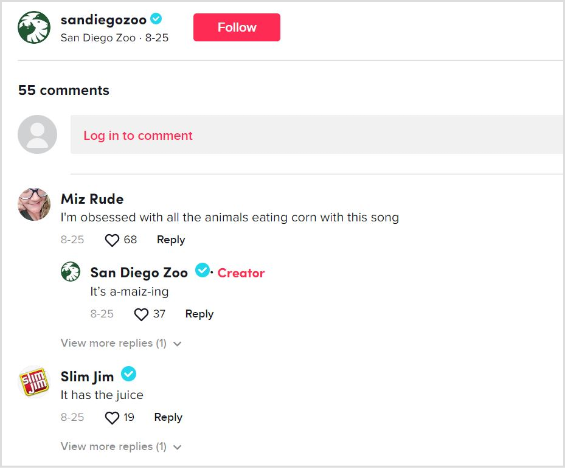
You can also pair up with a competitor or another brand serving the same audience as you for a campaign. This way, you’ll show your brand personality and come across as fun and human.
Remember: Your audience is likelier to engage with you when they see your brand’s human side.
6. Launch a UGC campaign
Did you know user-generated content (UGC) convinces shoppers to buy from you? About 79% of folks say user-generated content significantly impacts their buying decisions, according to Stackla.
So, a simple social media engagement tactic to leverage is launching your own UGC campaign. In addition to growing your social engagement, it’ll create a substantial pool of social proof, which helps increase sales.
An effective UGC campaign gets more and more people to talk about you as followers jump in to participate and tag you in their posts. You can also reshare the best images to make your best followers feel special.
Take Trello’s UGC campaign as an example here. The Kanban-style project management software encouraged people to share an image of their remote workspace using the tool and the branded hashtag #WhereITrello.

You can do something similar — encourage people to share a picture with your product and use your branded hashtag in the post. The branded hashtag for the campaign will help you find content posted by participants. It can also increase your long-term social media engagement as people surf the tag to learn about your brand.
7. Jump on trends
Yet another way to increase your social media engagement: leverage trends. Here’s how:
- Add trending songs to your Reels and TikToks
- Make videos of trending topics
- Use trending hashtags in your tweets.
Adding your unique twist to viral trends increases your odds of going viral, which, in turn, boosts social engagement.
Related Read: How to find TikTok hashtags and go viral
But how can you tell what’s trending? The simplest way to find trends is to explore your social media feed. The social media algorithms of different platforms are likely to boost trending content, making it easy to spot relevant trends.
Look at how creatively San Diego Zoo has made a TikTok on the trending corn audio:
@sandiegozoo Her name is even Maizey 🌽 #itscorn #cornsong #animalsoftiktok #porcupine #sandiegozoo
You can do something similar and make content on a trend that may or may not be directly related to your industry, or partner with a UGC agency to source fresh content.
Related Read: Top 15 social media trends for marketers in 2025
8. Ask questions
Adding a question-based call-to-action (CTA) in your status, tweet, or photo caption is one of the easiest ways to increase your social media engagement. The CTA encourages people to respond, which boosts engagement by increasing comments or replies.
You can ask two types of questions. One is the type that encourages opinion sharing and hence, community building. And two, ask for feedback, which is a great way to improve your social media strategy and/or product.
Todoist does this on its Twitter often. See how the productivity app has asked for feedback on its latest template in this tweet:
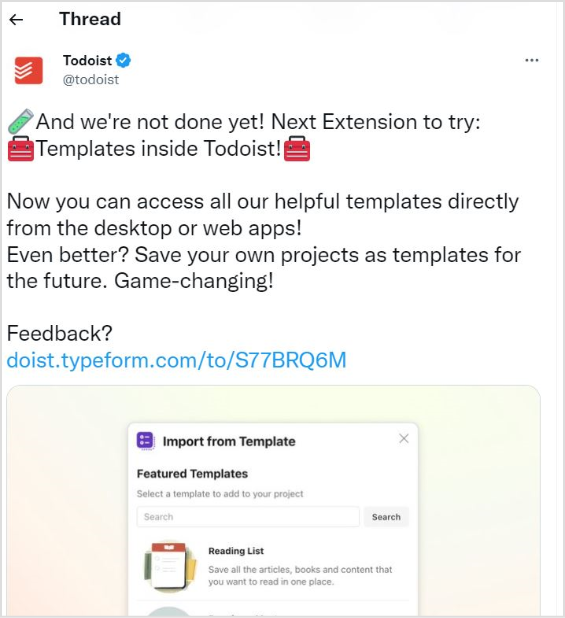
Pro tip: Add some context before asking your question, and write it conversational while staying true to your brand voice. Also, keep it simple and clear. This way, you can encourage conversations rather than one-word comments.
9. Give your employees the spotlight
Making your brand more human is a great way to increase social media engagement. Your followers and viewers on social media are more likely to interact with you when they find you relatable.
So what are some creative ways to humanize your brand? Here are some thought starters:
- Share behind-the-scenes content featuring your employees.
- Post from your personal account to represent your brand.
- Show off your team. Introduce your followers to the faces behind your company they’re interacting with from behind the brand’s social account.
- Encourage your social media or customer support team to sign off with their names. This means emails and comments should end with the sender’s name rather than the brand’s.
Take Sophie Michaud from Supermetrics as an example. Look at how she’s shared a behind-the-scenes post on LinkedIn, which has helped humanize the software company.
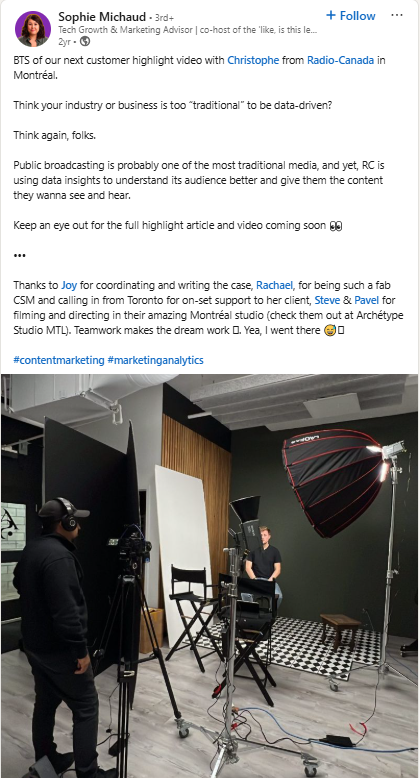
10. Collaborate with micro-influencers
Tapping into influencer marketing helps you reach a wider audience, leading to more followers and better engagement. In fact, 60% of marketers find influencer campaigns drive more engagement than branded posts.
Remember, your collaboration with an influencer will only be successful if the influencer you choose to work with is of the same niche as yours. And no, you don’t always need an influencer with a higher follower count. Micro-influencers can be just as beneficial, considering their engagement rate is often higher than that of macro-influencers engagement rate.
It’s also a good idea to consider long-term collaborations to ensure the benefits don’t evaporate once the partnership is over. Don’t forget to post quality content so new followers continue engaging with you.
Check out Jones Road Beauty’s collaboration with influencer Tyra Brielle on Instagram for some inspiration:
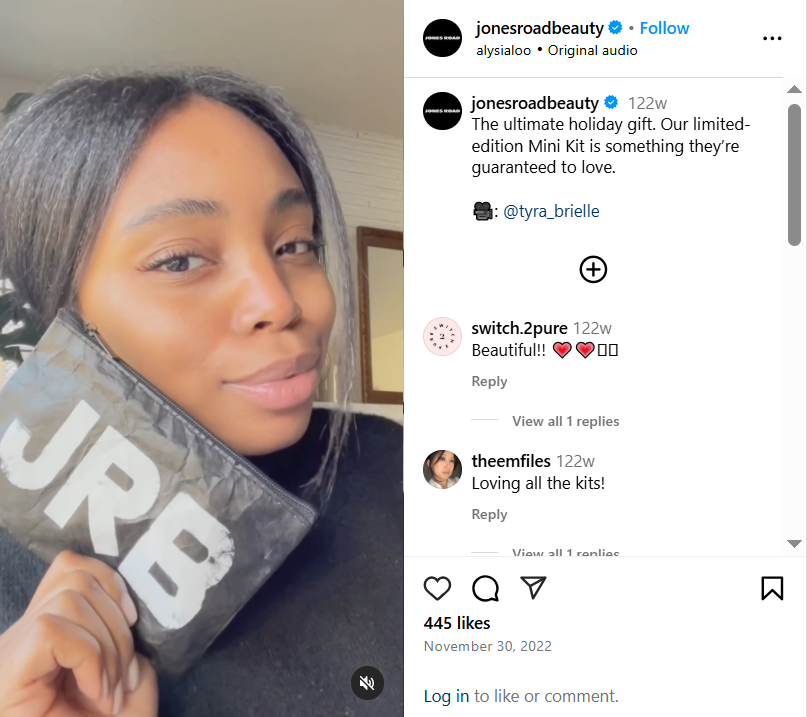
11. Use the hashtags your target audience is using
Using the right hashtags puts your content in front of the right people. But wait — how do you know which hashtags you should use?
Use an app such as Hashtagify to find niche-specific hashtags. Don’t go overboard; use plenty of hashtags in each post. Instead, limit your hashtag usage depending on your social channel.
Here are some more tips on using hashtags:
- Avoid using generic or overcrowded hashtags. Those rarely help.
- Use more of the hashtags that are bringing you engagement. Find which hashtags are working for you by checking your social media analytics.
- Don’t overuse the same hashtags. Try different hashtags for different posts to drive more engagement.
Note how Chobani follows all of these best practices as it uses hashtags in this Instagram post:
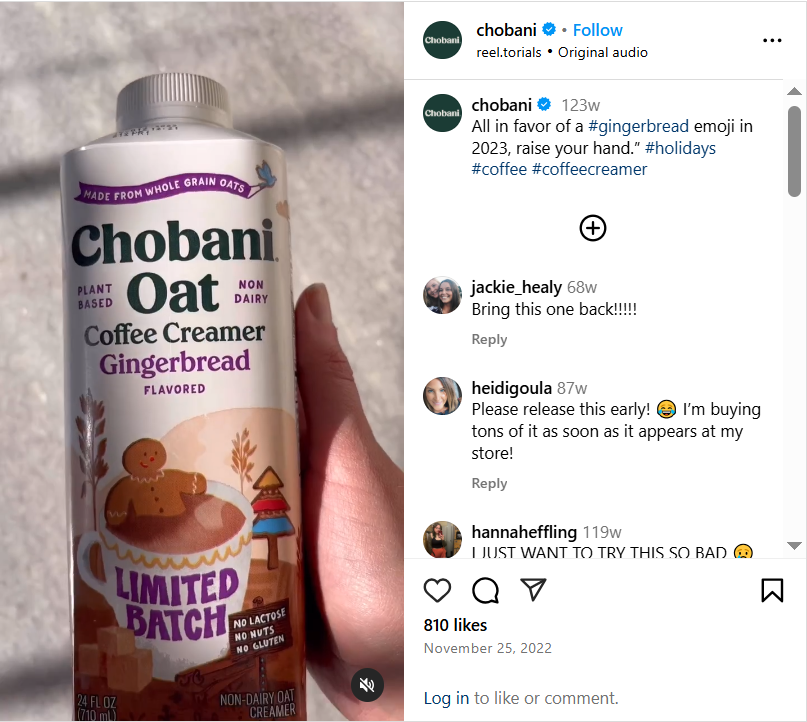
12. Incorporate social listening
Social listening goes beyond tracking your own mentions or reading through comments and DMs—it’s about stepping outside your brand bubble and paying attention to real conversations happening across the internet.
It’s the practice of actively listening to your audience — understanding their challenges, needs, and questions — so you can create content that genuinely resonates.
What are people saying about your industry? What problems are they facing that your product or service can solve? What topics are they passionate about?
Start by immersing yourself in online communities where your audience hangs out. If you’re in the fashion space, for instance, browse Reddit threads like r/FashionAddiction or follow beauty conversations on X (formerly Twitter).
When you listen first, you stop guessing and start creating content your audience actually wants. Social listening helps you shift your content from brand-centered to audience-focused, positioning your brand as a trusted resource rather than just another voice in the crowd.
13. Turn audience feedback into content that connects
Every comment, question, or DM from your audience is an opportunity to create content that truly resonates. These conversations give you direct insight into what your audience wants to see more of — their questions, challenges, and curiosities.
Platforms like Instagram, TikTok, and LinkedIn make it even easier to turn feedback into content by allowing you to reply to comments with a post or video.
When you create content inspired by your audience’s input, you’re not just filling your content calendar — you’re building trust and showing your community that their voice matters.
It’s one of the most authentic ways to drive engagement because your content is based on real needs, not assumptions. Listen closely, respond thoughtfully, and keep the conversation going. That’s how you create content that feels personal, relevant, and impossible to scroll past.
14. Host live sessions
Video is all the rage these days. Interestingly, live streaming gets more engagement than other video content as it allows your followers to connect with you in real time.
Live videos also work because they’re more personable and build deeper connections with your audience. They make your brand come off as authentic and credible, which increases brand loyalty.
No wonder people tend to watch live content for longer — spending 10-20 minutes more on consuming live video content than on-demand videos.
It’s why hosting live sessions on TikTok, Instagram, Twitter Spaces, or other social channels can positively impact your social media engagement.
Here’s Kismet Bagels using live video on National Bagel Day to engage its audience with a live giveaway announcement:
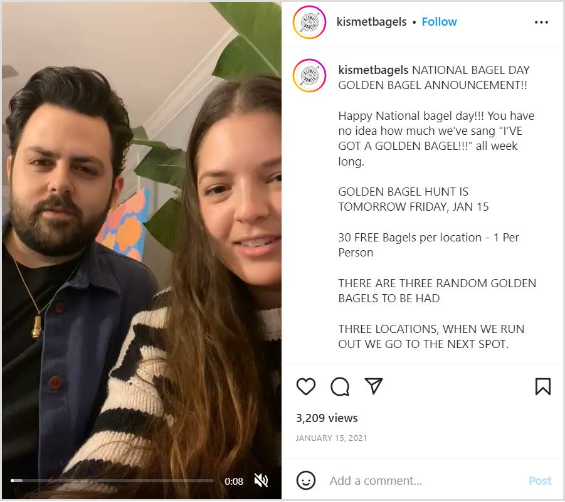
6 tools that can help you boost your social media engagement
Increasing social media engagement is a tough job. But you can make it much easier and smoother for your team with the best content marketing apps. So below are 6 tools you can use to help you with your social media engagement strategies:
1. ContentStudio
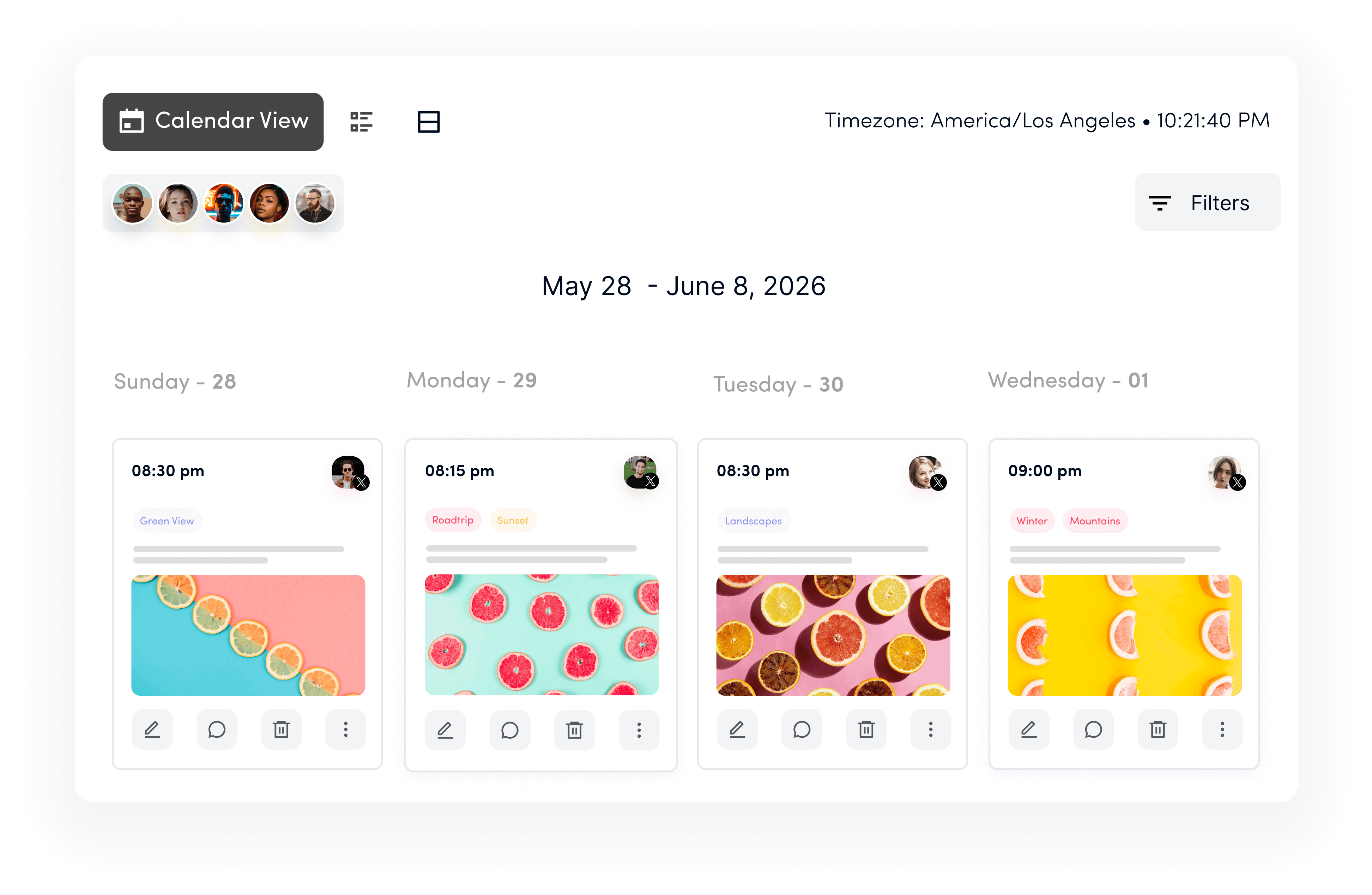
ContentStudio helps maintain your posting schedule and frequency minus the headache of hopping on different social channels around the clock.
Simply pre-schedule your posts for the week or so for all your social accounts from one dashboard — saving time and effort.
That’s not all, though. ContentStudio also enables you to analyze the performance of all your accounts and their content. With this information, you can optimize your posts further to improve your social media engagement.
You can also access all your social accounts’ inboxes from one place, making it much easier to respond to your followers promptly.
2. VEED
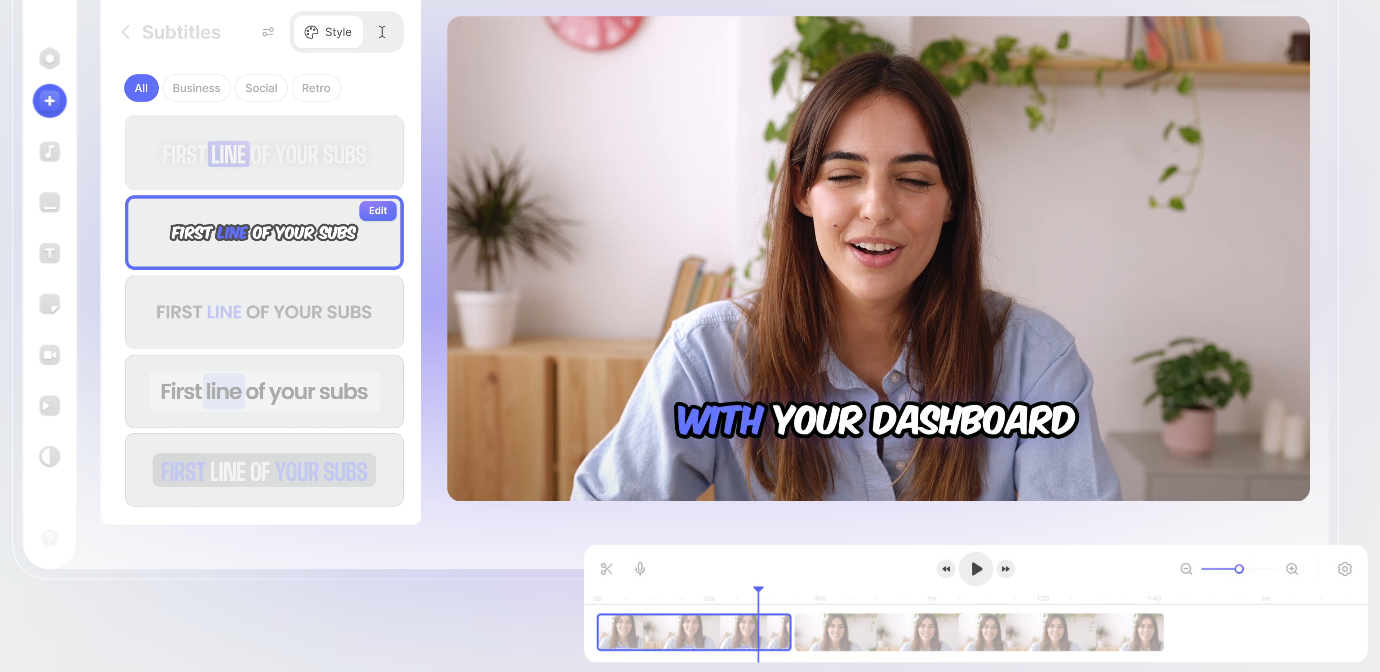
VEED is a video-editing tool for creating and editing videos.
With VEED, you can auto-resize videos, add filters, effects, and stickers, format text, include subtitles, clear background noise, and so much more. You can even live stream on different social media channels simultaneously.
3. PicMonkey
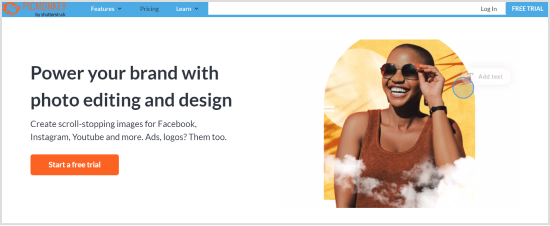
PicMonkey is a graphic design and photo editing software that helps you create graphics for your social accounts. It comes with free and paid templates for all your social posts, cover photos, profile pictures, and more.
4. Replug
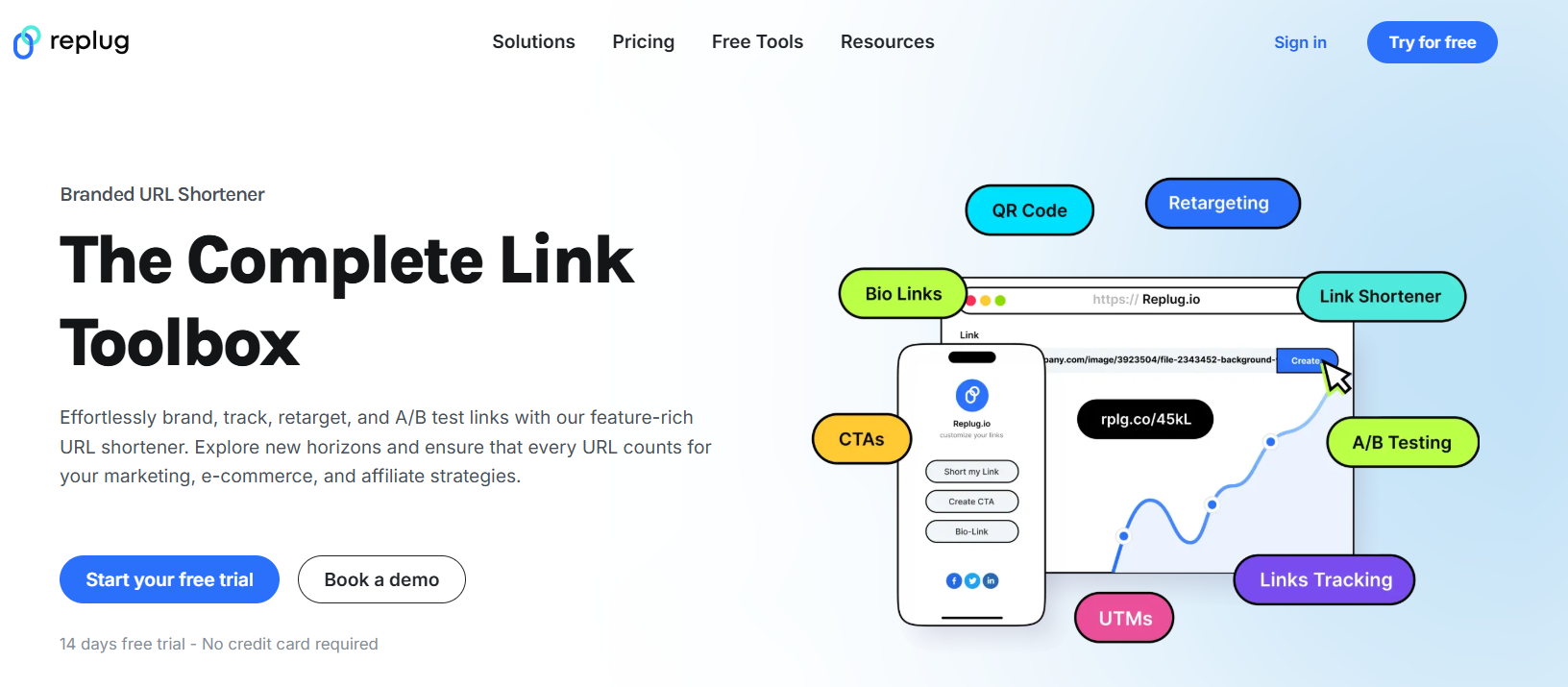
Replug is a link management tool that helps you shorten links so they can fit in your captions and social media bios. Apart from shortening and optimizing links, this software also enables you to create custom-branded links to track each link’s performance.
5. BuzzSumo
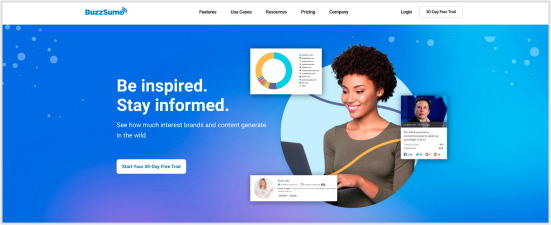
With BuzzSumo, you can keep tabs on social media content your target audience is enjoying. This helps with content ideation and curation for your social media marketing. The tool also helps with social listening as you can keep an eye on your brand reputation and mentions and track competitors.
6. SparkToro
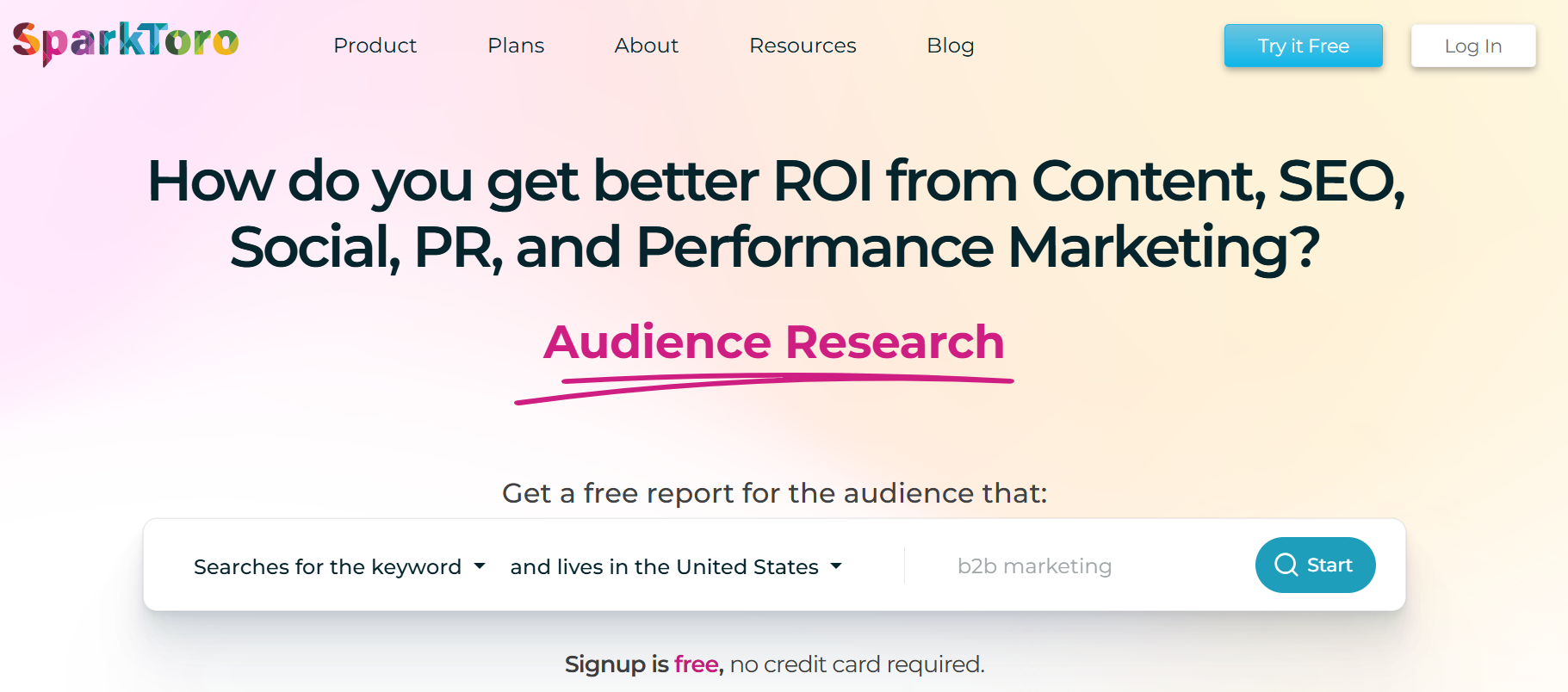
SparkToro is another tool that increases social media engagement by helping you with audience research. It gives you insights on the accounts your target audience follows and the hashtags they use. Use this information to find brands and influencers to collaborate with.
Ready to boost your social media engagement?
Social media engagement unlocks several opportunities for your business, including growing your brand awareness, customer loyalty, brand reputation, and more.
Focus on improving your social media engagement rate by posting content your audience will enjoy. Follow trends, use hashtags, go live, and work with influencers to increase your reach.
To make things easier, use ContentStudio to schedule posts, analyze your social media performance, and manage your social inboxes — all from one app.
FAQs
1. What is social media engagement?
Social media engagement refers to how engaging your brand is on its social media accounts. It measures how your audience interacts with your content on social media channels like Facebook, Instagram, Twitter (X), TikTok, and more.
2. What is a good engagement rate on social media?
Engagement rates can vary by platform and industry, but generally, a 1-5% engagement rate is considered healthy on most social media platforms. For smaller, niche accounts, rates may be higher, while larger accounts may have lower percentages due to audience size.
3. How often should I post to improve engagement?
Consistency matters more than volume. Aim to post at least 3-5 times a week on platforms like Instagram, LinkedIn, and Facebook. For faster-paced platforms like X (formerly Twitter) or TikTok, daily posting or multiple posts per day can help increase visibility and engagement.
4. What type of content drives the most engagement?
Content that sparks conversation, provides value, or invites interaction usually performs best. This includes question posts, polls, tutorials, behind-the-scenes content, user-generated content, and content that taps into trending topics or humor.
5. How long does it take to see results from an engagement strategy?
Improving engagement isn’t an overnight fix. It typically takes a few weeks to a few months of consistent effort, audience research, and content experimentation to see noticeable improvements. Stay patient, track your analytics, and refine your approach based on what works.
Recommended for you


Powerful social media management software
14-day free trial - No credit card required.
